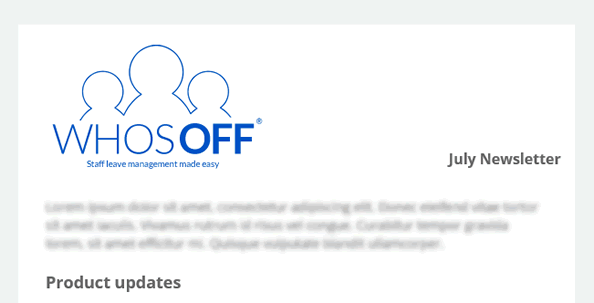You can’t predict the weather as the famous saying goes, but most company bosses wish they could. Extreme conditions cost the global economy more than $125billion in 2018, and the impact of climatic disruption can be felt by businesses months after the actual event.
Rather than lying awake worrying about it, however, the best way to approach impending bad weather is to prepare well. With an effective plan in place for dealing with inclement conditions, you can limit the chaos – and cost – to your organisation.
To help you prepare, here are some things to consider when putting together an extreme weather strategy…
Who will be able to get into the office – and who can still work from home?
A violent storm or heavy snowfall doesn’t necessarily mean that your company grinds to a halt. In this modern connected age, many businesses enable staff to work from home on an average week, and difficult weather conditions should be no different.
It’s a good idea to establish which members of staff can walk to work in the event of impassable roads or railway lines, so you know who is likely to still be in the office when conditions are tough. You can then manage the expectations of employees who cannot easily travel to work, encouraging them to take equipment such as laptops and chargers home at night if disruption is due. This way, there’s nothing stopping people from working at home.
To make remote working successful, however, it’s vital that your whole team knows who is available and where they are based. This is where technology can keep disruption to a minimum; if you have a centralised platform for managing staff leave, colleagues can log on and record that they are working from home that day. Equally, anyone who decides to take the time as holiday can mark their absence.
With an online management solution in place, team members know exactly who they can contact, even if they are working from different locations.
What is your policy for taking time off?
When companies draft annual leave guidelines, it’s easy to forget about the protocol for extreme weather. As we’ve mentioned above, while some staff may choose to work from home, others may be unable to do their job remotely – or they might not want to.
Putting clear guidelines in place for taking time off during poor weather can save a lot of confusion in the long run. For example, during the winter months, UK councils have urged their employees to save up their holiday in case of a snow day.
Managing staff expectations will enable people to plan their leave accordingly, rather than thinking they are getting a ‘free’ day off because of poor weather. Equally, it can help to avoid scenarios where companies are hit by extreme conditions towards the end of the year, and employees have not saved any holiday to account for travel disruptions.
Having an online leave management platform in place can help hugely in this scenario, as any workers who choose to take the day off can log it themselves through your central solution. This way not only do colleagues know they are not available, managerial and HR staff avoid returning to a huge pile of paperwork when conditions improve.
What can you learn from bouts of bad weather?
Even though countries are hit by difficult conditions on a regular basis, the level of chaos caused by bad weather can make it feel like the first time, every time. Therefore, it’s important to learn lessons every time your business is impacted by the environment – in order to deal with the situation effectively in future.
Having centralised leave management software in place can really help with this process, as a good solution should include reporting and analytics tools. This will enable your HR and senior staff to see what proportion of staff worked remotely during bad weather at a glance, along with the percentage who took it as annual leave, and the spread of availability across departments.
By taking a holistic view of how long extreme conditions impacted attendance, how it affected working processes and how employees responded, you will be able to refine your strategy. Support this with qualitative feedback from team members who were in the office, working from home or on holiday, and you can develop a response plan that keeps your workforce happy at the same time as minimising disruption to your business.
Improve your staff co-ordination with our industry-leading leave management platform. Try WhosOff for free to see how we can help you cut the cost, time and complexity of co-ordinating employee leave.
Photo by Simon Matzinger from Pexels

